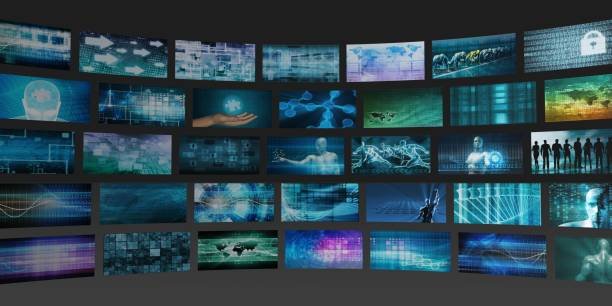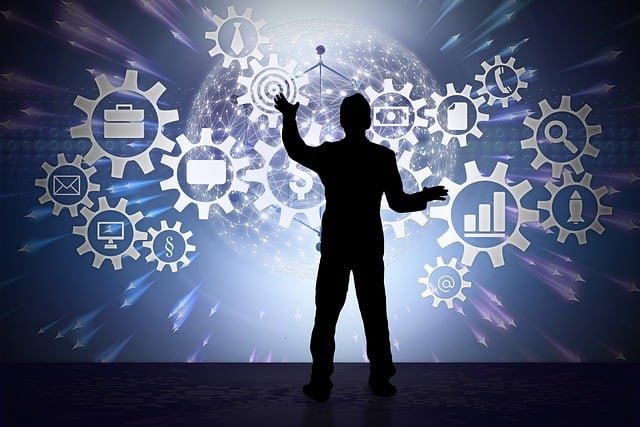AI Code Generation at Google: What Lies Ahead for Software Engineers?
The Rise of AI Code Generation at Google
The landscape of software development is changing in quite remarkable ways. This is especially true at Google. AI code generation at Google has been making a significant difference. It is estimated that over 25% of the code produced at Google is generated by AI systems. Such changes show how competent AI is in software development. They also demonstrate the rising dependency on advanced technologies. These technologies raise the productivity and efficiency level within engineering teams.
How Google’s AI Code Generation Tools Are Revolutionizing Programming and Boosting Developer Efficiency
Google has its own AI tool suite for code generation. These tools use algorithms to automate several programming tasks, simplifying the development process. These technologies allow the software engineer to focus on high-level design and problem-solving. Engineers are not held down by routine coding. It’s interesting to note that Google AI code generation signifies a shift towards automation in programming. It is reshaping traditional coding practices. This emphasis on automation will make engineers write code faster and with less error, fostering an agile development environment.
This also raises questions regarding the future job outlook of software engineers with the rise of AI in software development. As people see AI-facilitated coding, it is regarded as threatening employment in some quarters. However, on closer look, it enhances the software engineering trade. Engineers would not just write code as before. They would work more with AI. This new role should guide its application to generate the best available results. This collaboration creates a new path. It signifies a new landscape where software development embarks and flourishes through the blend of human competencies and AI support.
As AI continues to move forward, there is a need to change with these emerging trends for software engineers. What else can one do professionally other than code with an AI assistant? The trends at Google clearly show the direction of the software engineering profession. Therefore, it is necessary to be informed and proactive in approaching AI integration into workflows.
Impact of AI on Software Engineering
Artificial intelligence is entering various industries. It is taking a bold turn in software engineering. AI has provided new tools for automation in programming. These tools have changed the role of developers and the job requirements of the industry. The last few years have seen exponential growth in the use of AI for software development. This increase is due to the Google AI Code Generation platform. This innovation can enhance productivity, improve code, and improve the development lifecycle.
The Impact of AI-Assisted Coding on the Software Engineering Job Market and Skills Demand
Important considerations in the job market for software engineers relate to AI-assisted coding. The job market outlook for software engineers is changing. There is an increasing demand for skilled professionals able to leverage AI. This trend may also be associated with a concurrent reduction in the demand for entry-level programmers. Entry-level jobs have often been used as conduits for new talent entering the industry. These opportunities may decline. The required skill sets will shift as more routine coding tasks become automated.
The Pros and Cons of AI Code Generation: Efficiency, Ethical Concerns, and Human Oversight
Companies have widely adopted AI tools to improve their development process. This shows both the pros and cons of coding with AI. For instance, some companies, such as Google, claim to be improving efficiency and reducing errors by using AI code generation. However, over-reliance on AI is one such challenge, and there remains human oversight. Ethical issues top it all off. There are questions of accountability and transparency. Additionally, there are concerns about the results of decisions made via auto-processing.
The evolution of AI triggers in software engineering should prompt careful analysis. It requires examining its implications for roles and the landscape itself. Software engineers need to be attuned to this shifting terrain. They must focus more on working carefully. Their goal should be an honest and responsible position toward this changing terrain.
Future Trends in Software Development with AI
The rapidly changing landscape of software development is driven mainly by AI technologies. The trend that is most visible now involves generative AI, which enables different programming tasks to be automated. Google AI code generation tools are leading this shift. They enable software engineers to maximize their coding efficiency. These tools also eliminate time spent on routine activities. A recent report states that AI must be put to successful use. By 2024, up to 40% of software development work will be automated. This automation could change how developers perform their tasks in many ways.
How Emerging AI Frameworks and Platforms are Revolutionizing Software Development and Boosting Innovation
Emerging frameworks and platforms are critical to that shift. They provide software developers with resources to apply the capabilities of AI in effective directions. For instance, machine learning algorithms not only support the coding process but also support testing, debugging, and deployment processes. It is a comprehensive application of AI toward programming that may revolutionize conventional practices. Such practices make it easier to encourage software developers to be more about design and strategy rather than about coding. With AI assistance in coding, developers can focus on creativity and innovation. They provide solutions without dealing with mundane chores.

Then education in software engineering needs to catch up with such strides. Institutions are now adding AI and ML to their curricula. This trend prepares the programmer of the future for a world where even programming automation is a matter of practice. The job outlook reflects this trend. Roles that require competency in AI are expected to grow by 22% through 2024. This explosion stresses that professionals in the current workforce should upskill. They need to do so to avoid being pushed out by the industry. AI changes job requirements and expectations in this age.
In conclusion, human coders and AI technologies will reshape the approach to software development as AI advances. Developers must be ready to adopt these changes. They should use new tools and frameworks that will make them more productive. These changes will also make them more creative in their jobs and shape a more efficient programming environment.
Conclusion: Embracing the AI Revolution in Coding
AI integration in software development marked an important trend. This trend evolves the landscape for software engineers. It presents both traditional coding practices and new opportunities for efficiency and innovation. The evolution would bring insecurity regarding jobs for software engineers. However, AI tools integration into the system can speed up one’s career rise. It can also decrease workload. As mentioned above, automation replaces the human ability in routine tasks. This shift allows developers to focus more on the complex creative aspects of the problem.
How AI Code Generation is Accelerating Development and Enhancing Code Quality in Tech Companies
A development team recently completed a project in one of the biggest tech companies. This project is an excellent example of such an evolution. Coding with the support of AI helped that team to minimize the time taken to the market. This process enhanced both the quality of their code and their capacity to meet customers’ requirements at a quicker pace. This change of direction shows the advantages brought by AI code generation for Google. It also emphasizes how indispensable human intuition and creativity must continue to be in the code-writing process. Software engineers should understand that though automating tasks is possible, creativity remains an exclusive realm of humans.
In the end, success in software development depends on the seamless interaction between human intelligence and machine learning. Thus, incorporating AI into the software development trend will make professionals up-to-date but also able to perform optimally. Software engineers should view development as a tool. These tools are meant to empower them with further capabilities and horizons. By embracing these transformations, engineers can well position themselves in this exciting age of AI-driven programming.







